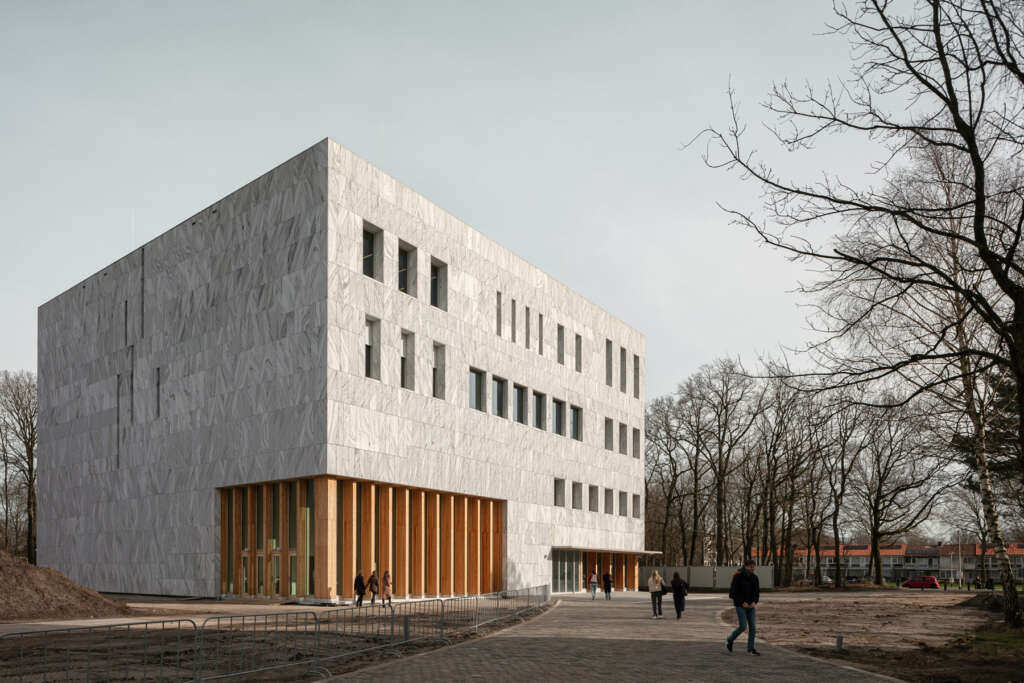
Marga Klompé Building
Architect: Powerhouse Company
Location: Tilburg, Netherlands
Type: Educational
Year: 2023
Photographs: Sebastian van Damme
Highly sustainable and circular design by Powerhouse Company on the Tilburg University Campus
Marga Klompé Building, designed by Powerhouse Company, is the first college building in Europe to be entirely constructed from solid wood. The new, nearly energy-neutral complex is situated on a plot of land measuring 33 by 33 meters, within the forested campus of Tilburg University. The building accommodates a foyer, 1 auditorium, 13 lecture halls, and self-study spaces for approximately 1,000 students. Its distinctive architecture pays homage to the monumental Cobbenhagen Building on the campus while also serving as a model for the highly sustainable ambitions of university campuses in Europe.
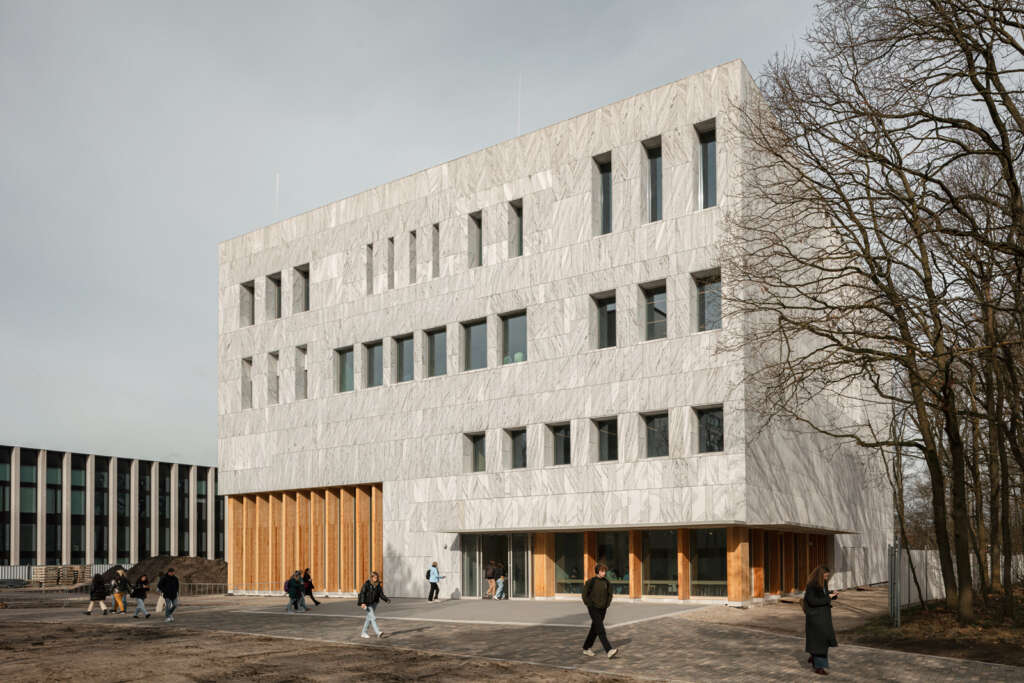
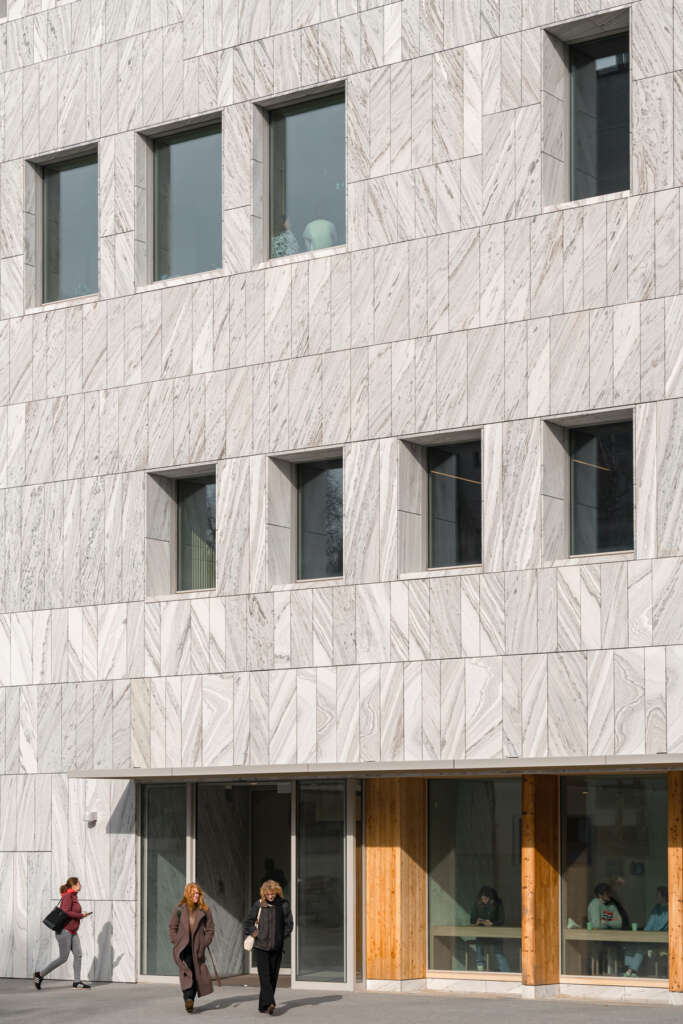
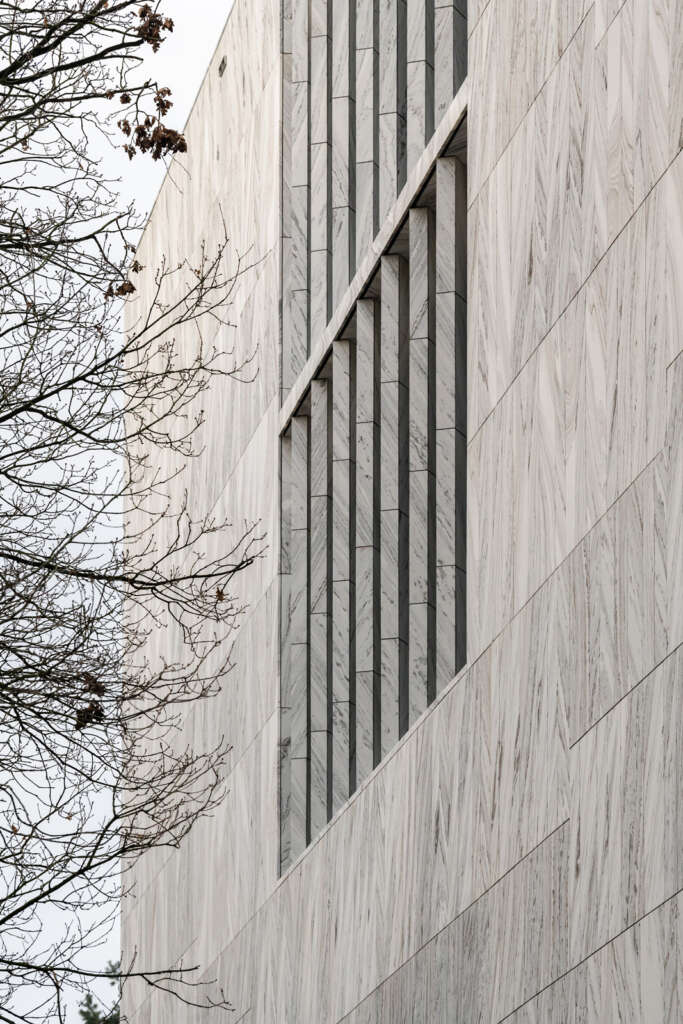
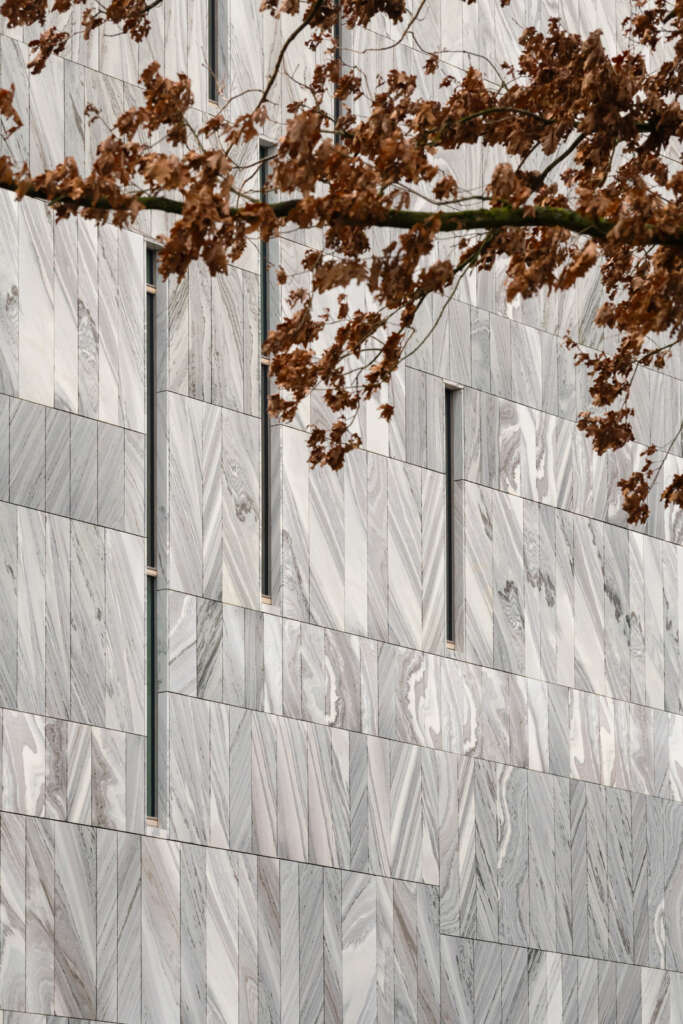
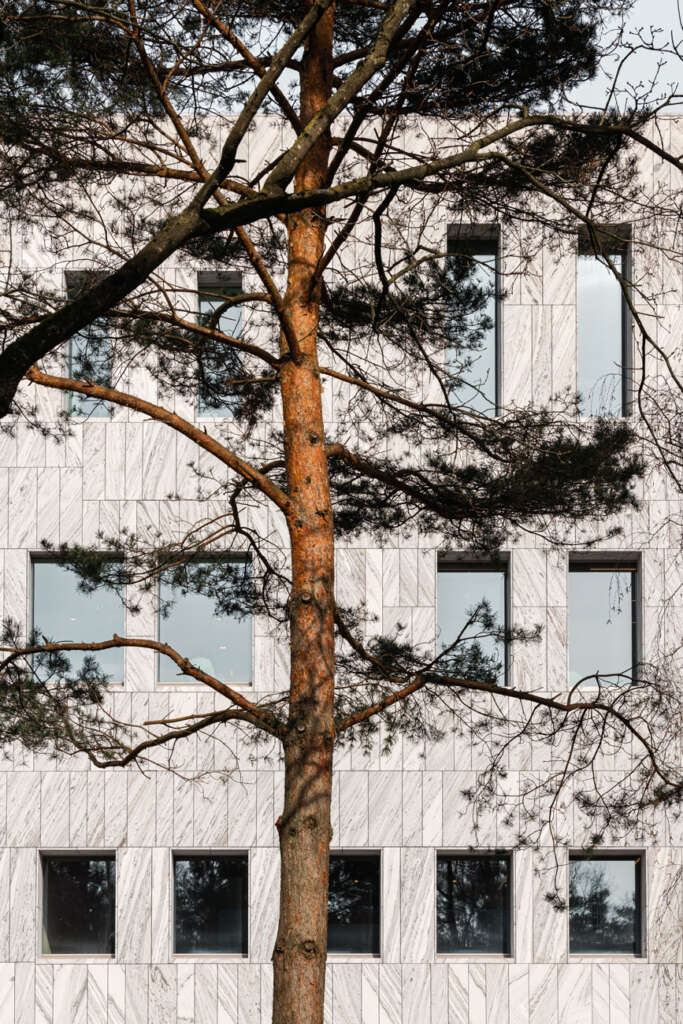
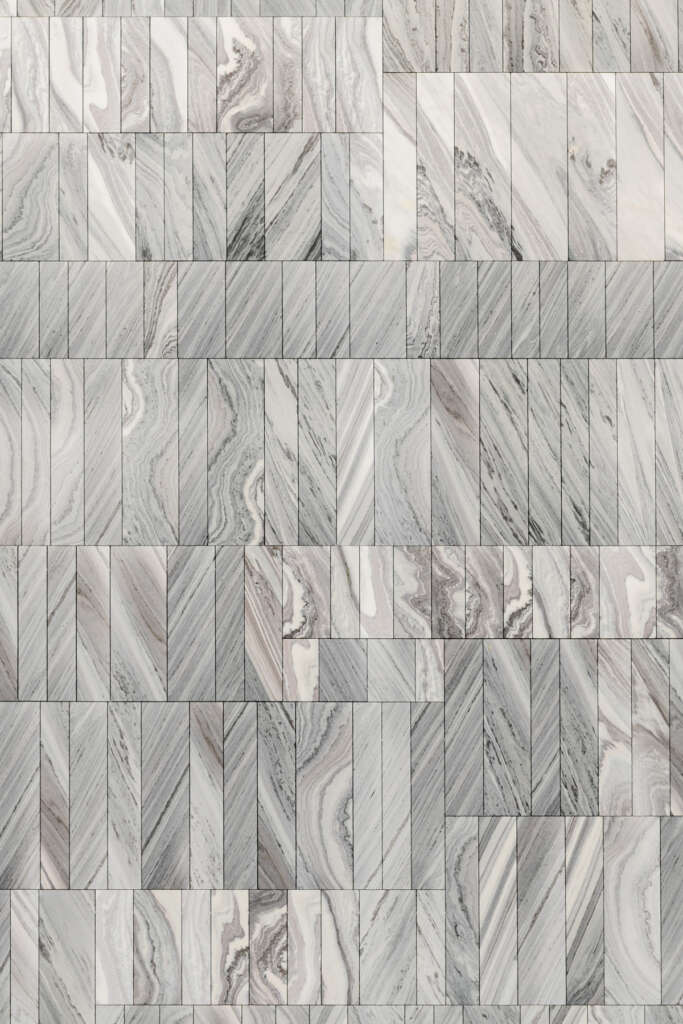
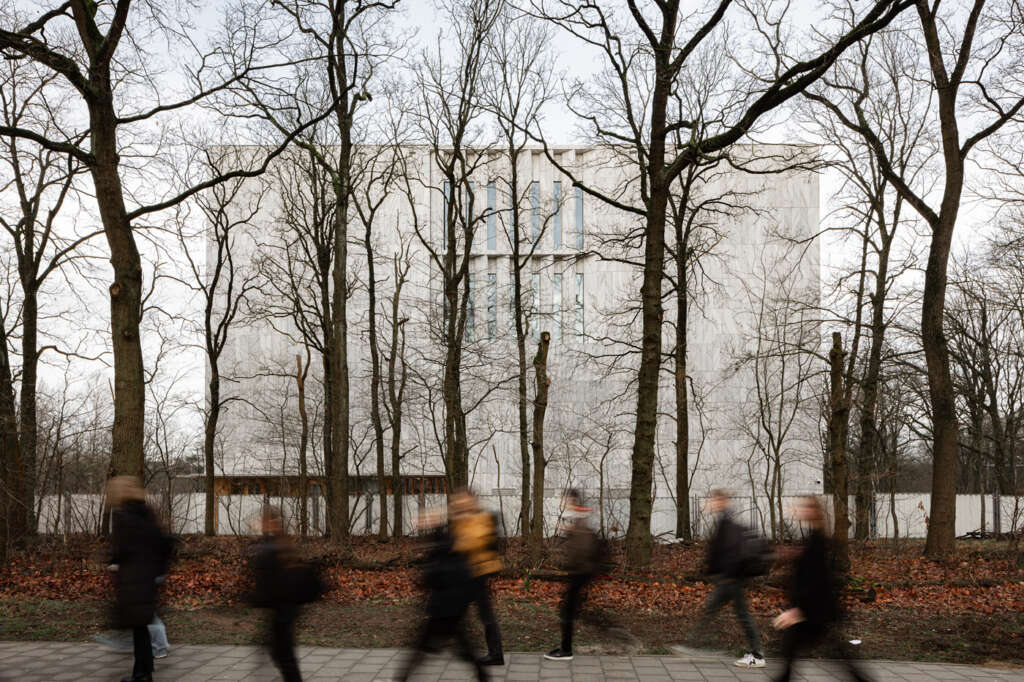
Modernist and timeless
The following description is courtesy of the architects. The design of the Marga Klompé Building seamlessly integrates with the modernist architecture of the Tilburg University campus. Its circular ambitions are reflected in the renewable nature of its wooden construction, walls, floors, stairs, frames, and finishes. A unique dry construction system has been implemented, utilizing wooden ribbed floors—CTL floors reinforced with beams—that enable large free spans meeting the high acoustic requirements necessary for the program. The Portuguese natural stone facade, featuring deep reveals, directly references the iconic 1962 Cobbenhagen Building by Jos Bedaux. The natural stone, with its long lifespan and ability to be disassembled, confirms the circular ambitions. The stony volume harmonizes with the surrounding architecture, forming an intriguing contrast with the lush, wooded environment. The all-encompassing building is integrated into the campus and marks the entrance from the station.
‘Our design aligns with Bedaux’s architecture with muschelkalk stone facades and rhythmic window divisions. In doing so, we emphasize a strong connection with the natural environment.’
– Janneke van der Velden (Associate and Project Architect, Powerhouse Company)
Powerhouse Company took the Cobbenhagen Building as a starting point for spatial qualities but brought the design into the 21st century by opting for a palette of natural, circular materials such as wood, terrazzo, and plasterwork. These materials are prominently featured and contribute to a serene atmosphere, from the spacious lecture halls to the intimate alcoves by the windows. Additionally, wooden furniture has been used to enhance the tranquil study spaces.
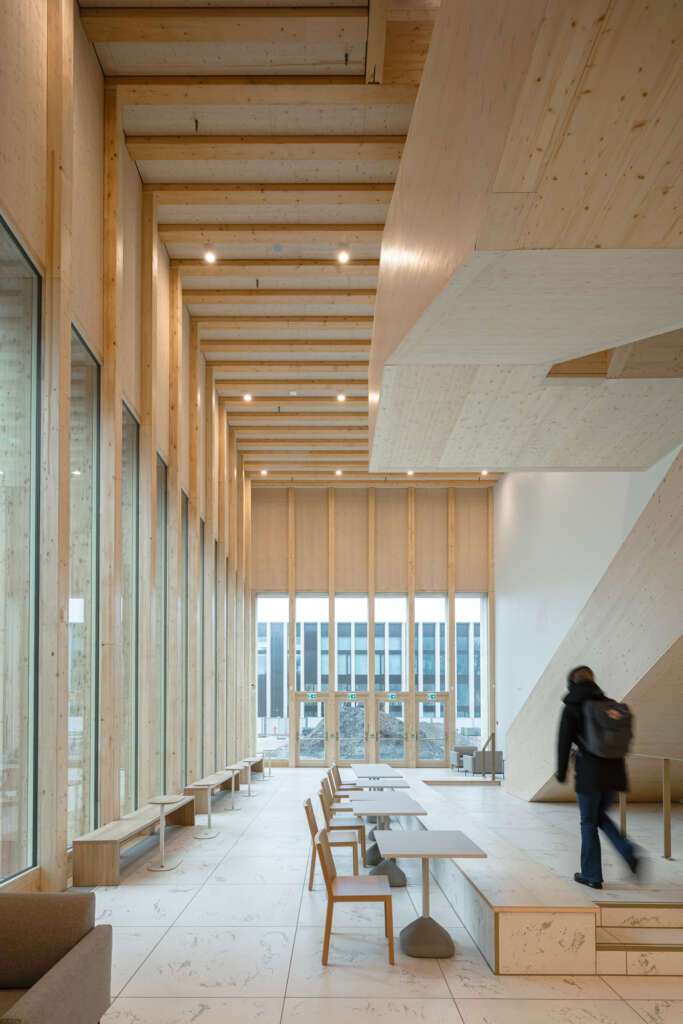
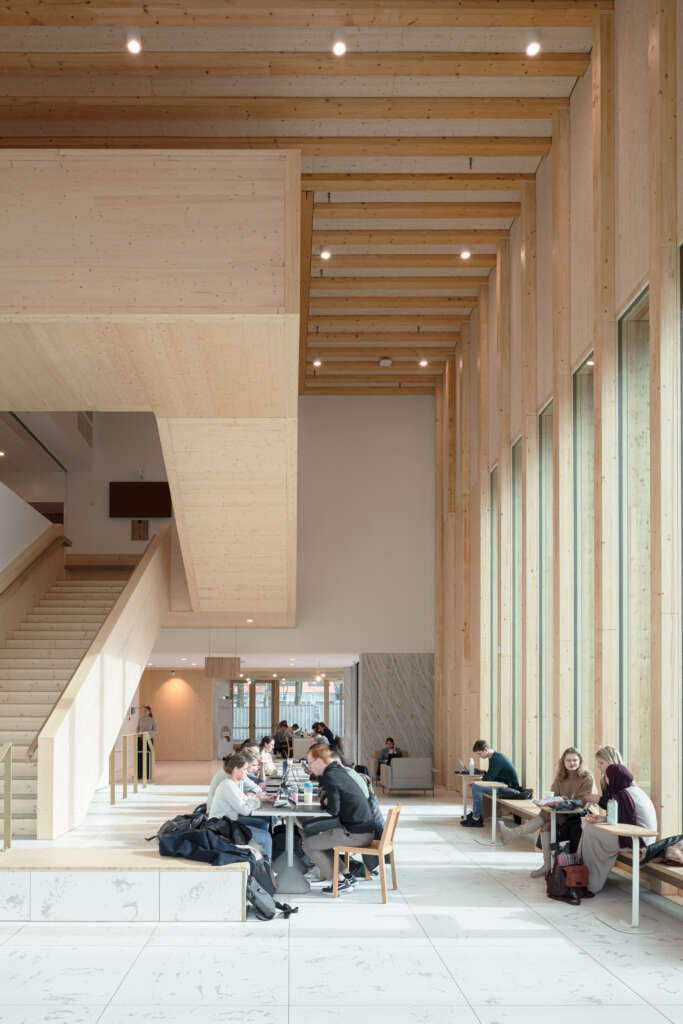
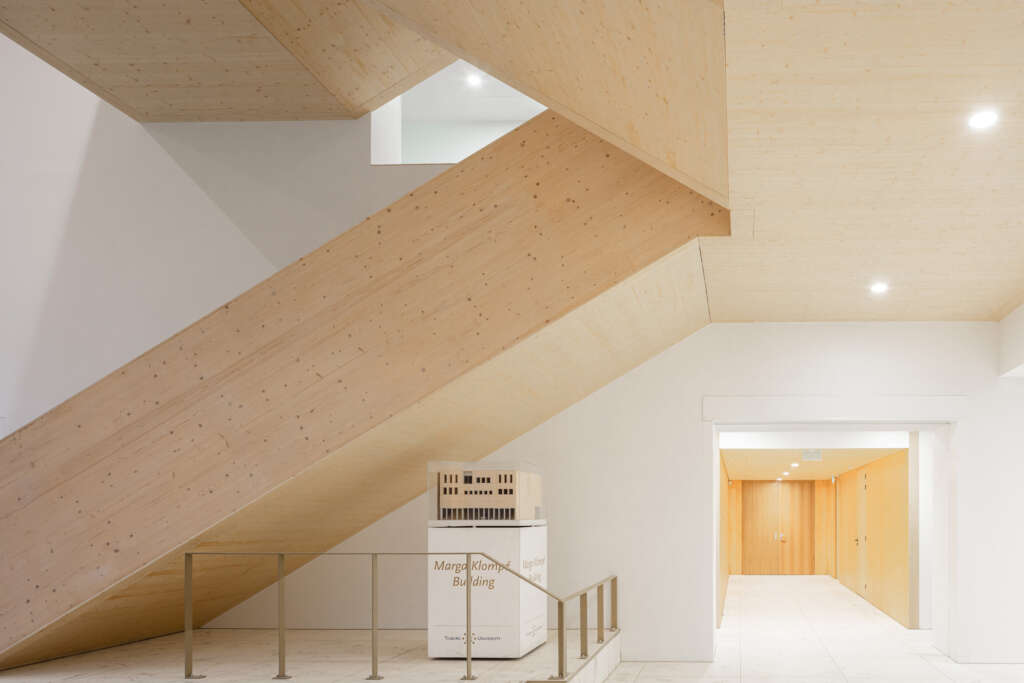
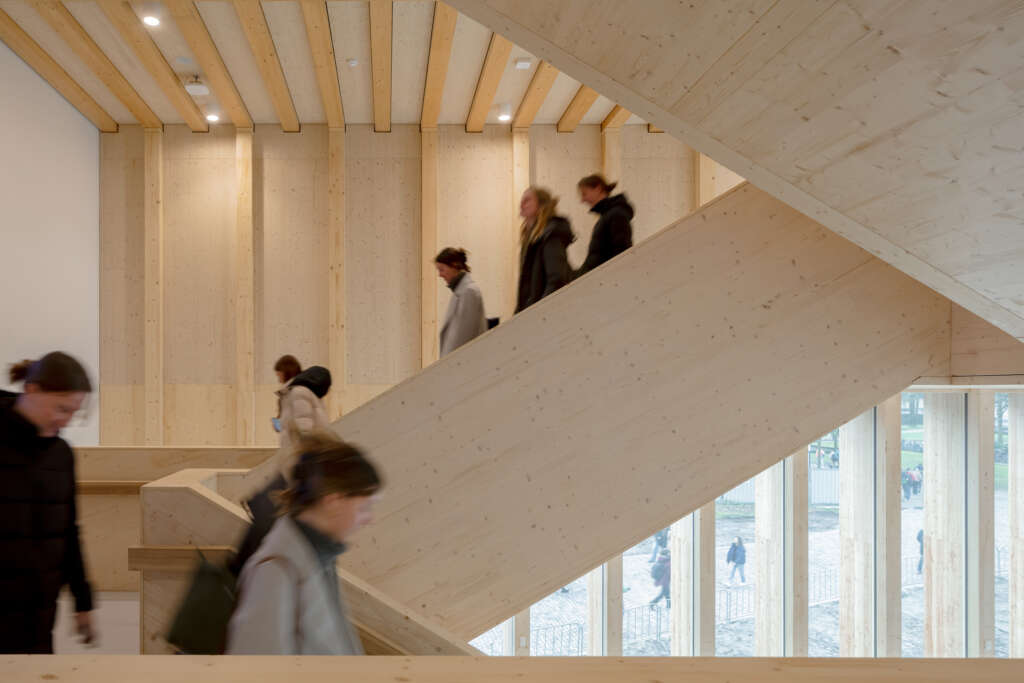
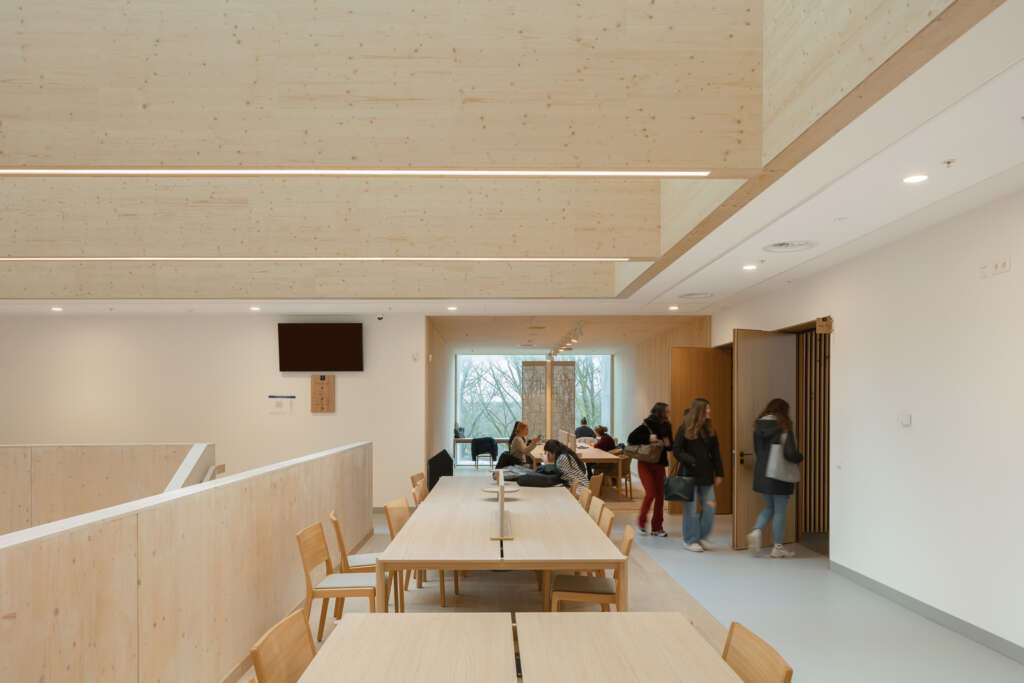
Sustainability
Marga Klompé Building is designed with the latest insights in sustainability based on the Trias Energetica principle, including very low energy consumption and smart use of natural resources. The cube shape and central atrium of the building minimize energy loss through the exterior walls. Strategically placed openings ensure a stable indoor climate without additional energy consumption. A well-insulated building envelope does the rest for a passive contribution to low energy usage. For this purpose, a special material has been chosen: the insulation partly consists of recycled denim jeans. Textile waste that would otherwise be incinerated is now used to create cotton insulation. It is sustainable and has proven to be an excellent way to improve the building’s acoustic comfort.
‘The close collaboration with the design team and the client has resulted in a building that not only meets strict sound and acoustic standards but also seamlessly integrates circular and sustainable principles for an optimal living environment.’
– Gerben Stam (Strategic Advisor, Royal HaskoningDHV)
The design maximizes the number of PV panels and integrates energy-efficient installations. Ventilation and lighting feature smart control systems that adapt to actual demand. Heating and cooling are provided by an efficient ground storage system with a heat pump. Despite the strong emphasis on energy efficiency, the indoor climate meets Fresh Schools Class A standards. The Marga Klompé Building can proudly boast a BREEAM Outstanding certificate and achieves nearly energy neutrality.
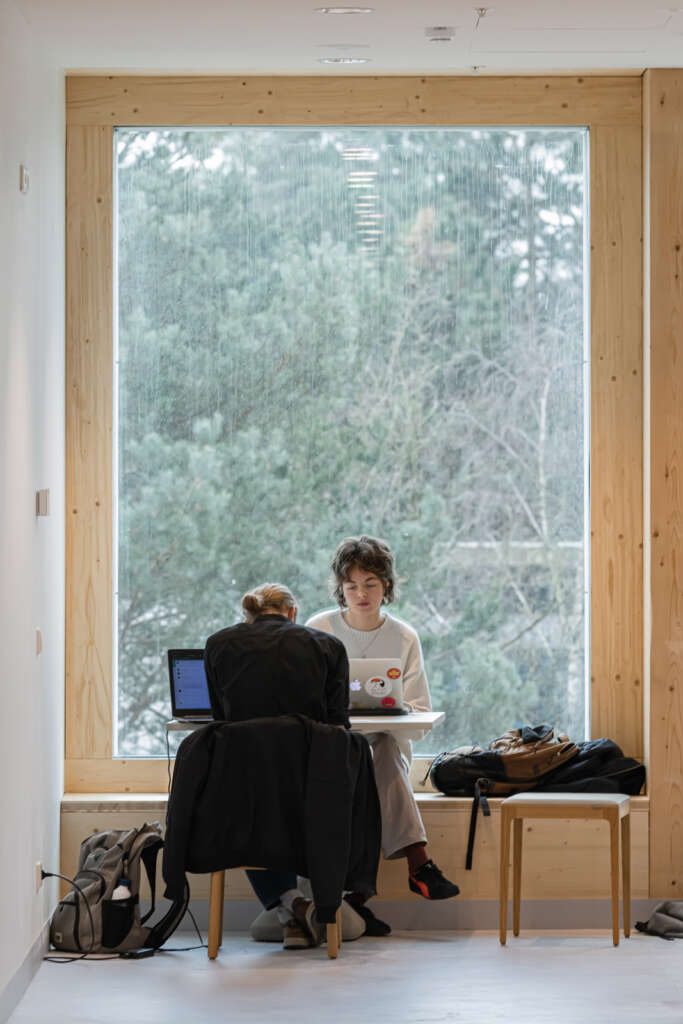
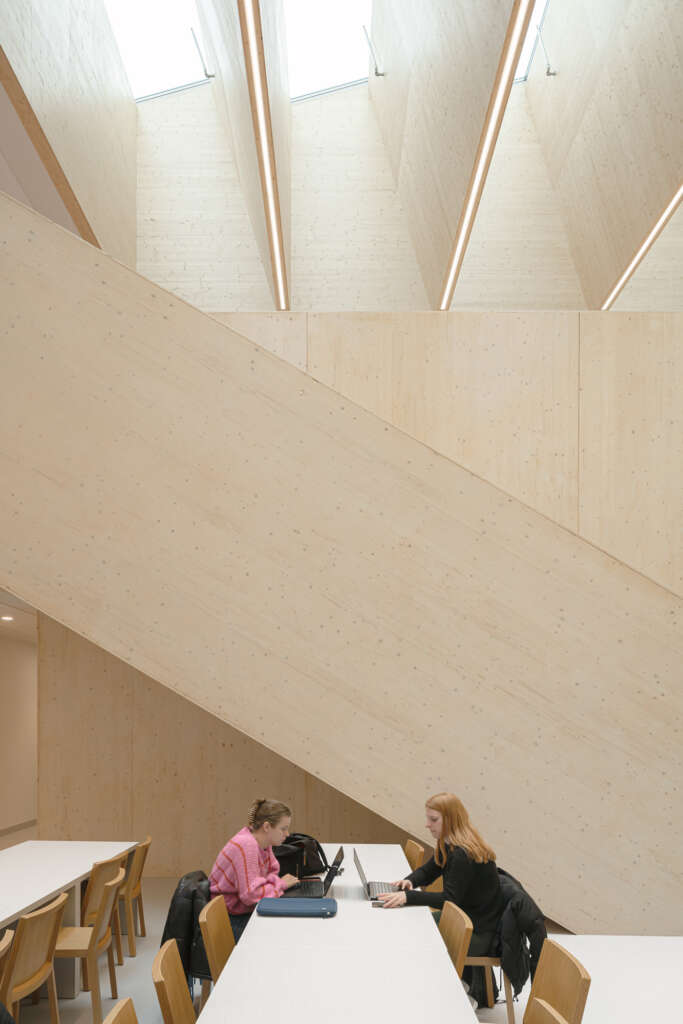
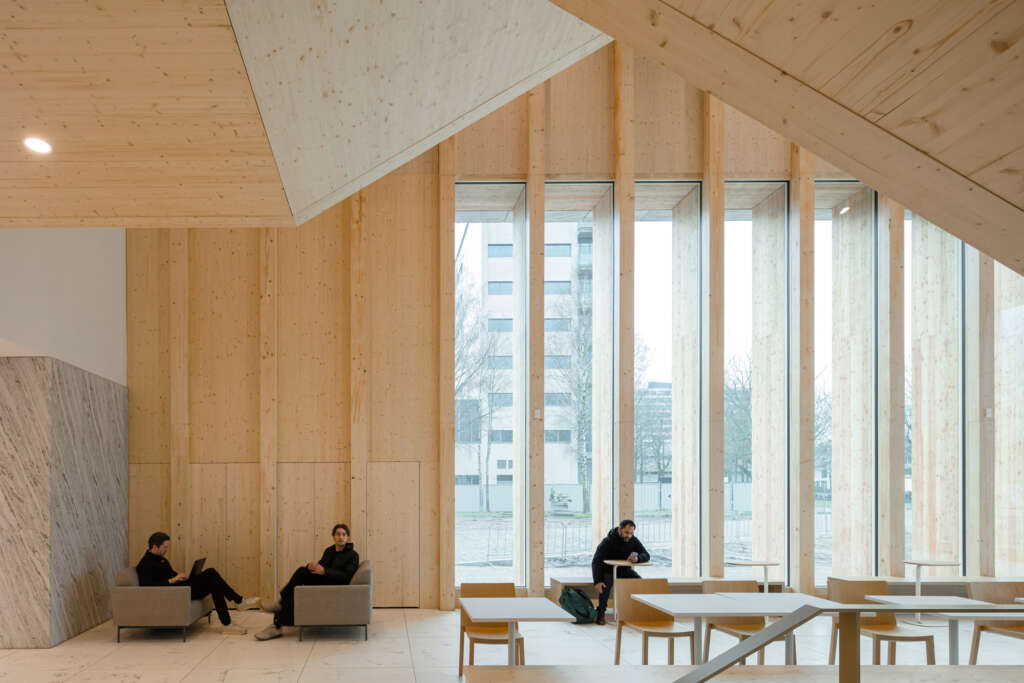
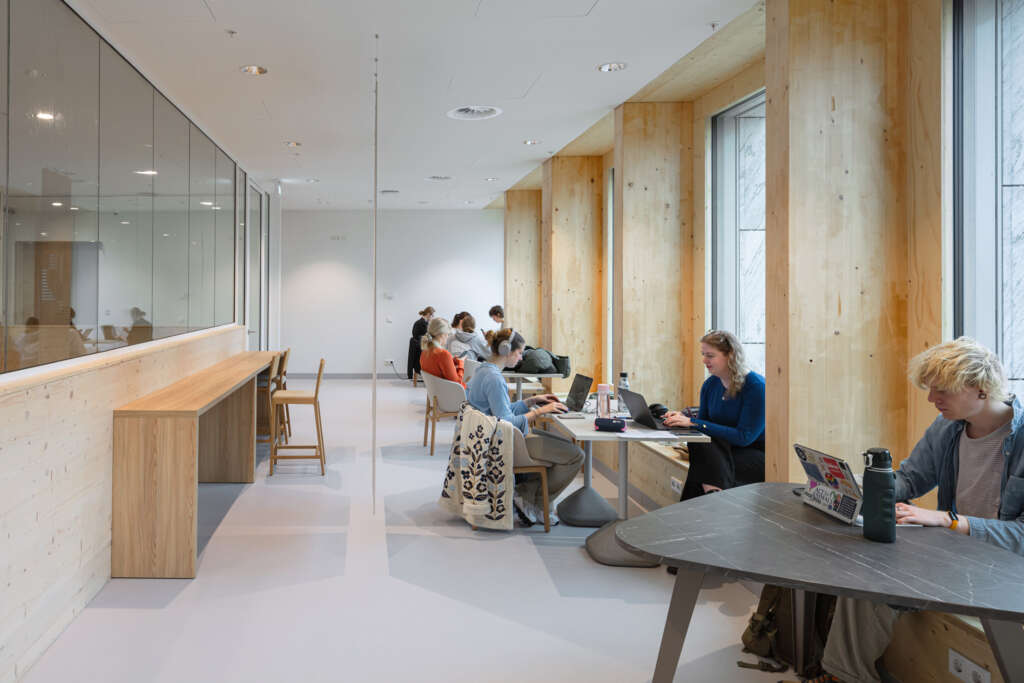
Circular ambitions
Careful consideration has been given to how building installations can contribute optimally to circularity. Thanks to the thoughtful design of the building, the use of climate installations can be minimized. Stringent requirements for air quality have led to the integration of ventilation and climate systems. Furthermore, the atrium has been cleverly utilized to harness return ventilation. This has resulted in a significant reduction in the required ductwork, contributing to an impressive circular assessment with an MPG score of 0.5, a BCI score of 0.61, and an MCI score of 72%.
‘By proposing a wooden educational building in our vision for the tender, we motivated the client to take the next step in sustainable educational buildings. Together with Tilburg University, we further elevated the ambitions during the design process to achieve a maximally circular and energy-neutral design.’
– Stefan Prins (Partner Architect, Powerhouse Company)
In addition to being circular, the Marga Klompé Building is also climate-adaptive and nature-inclusive. The gently sloping landscape, designed by Studio REDD, extends to the facade and includes a wadi seeded with wildflowers. This wadi serves not only as an aesthetic element but also functions as a Water Drainage and Infiltration system, capturing and infiltrating rainwater into the ground instead of directly draining into the sewer system. This contributes to reducing flood risks and promoting a healthier ecosystem while sustainably connecting with the campus and the natural environment.
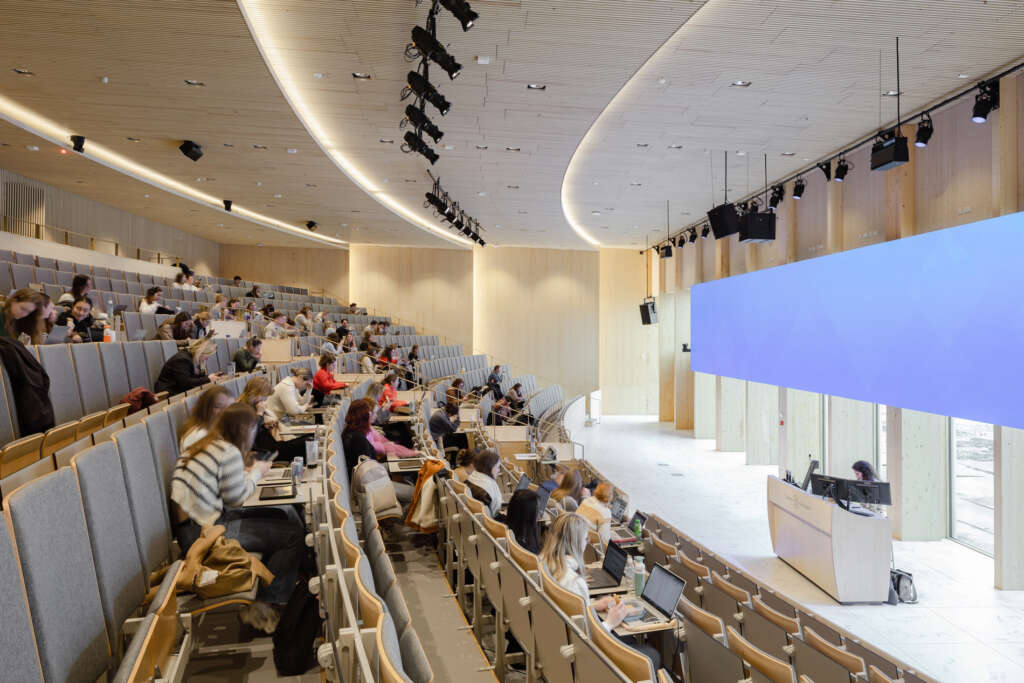
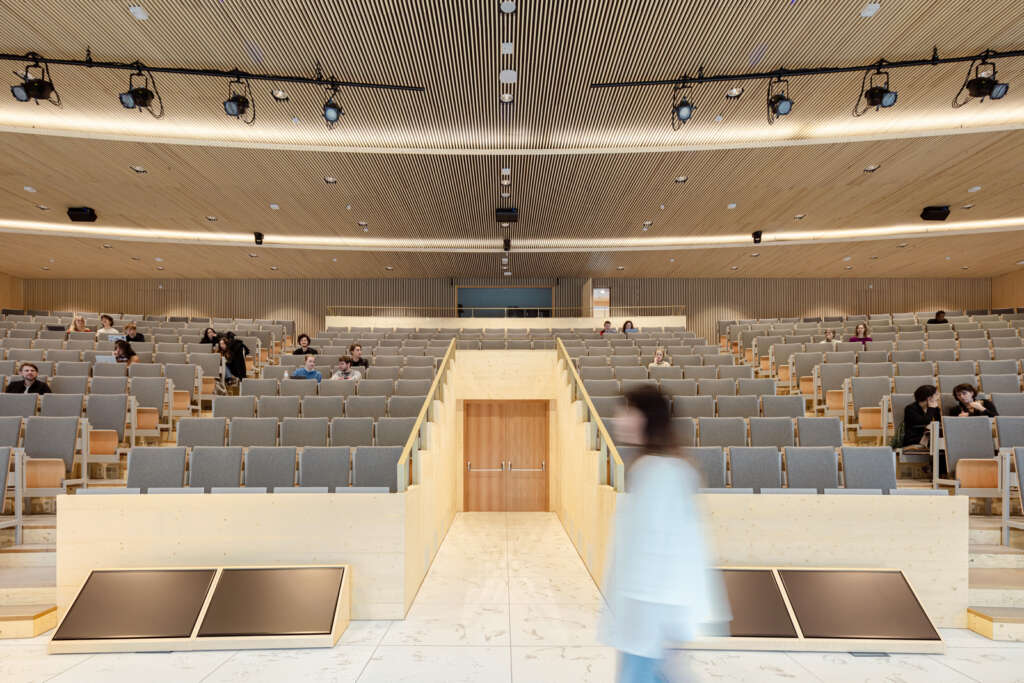
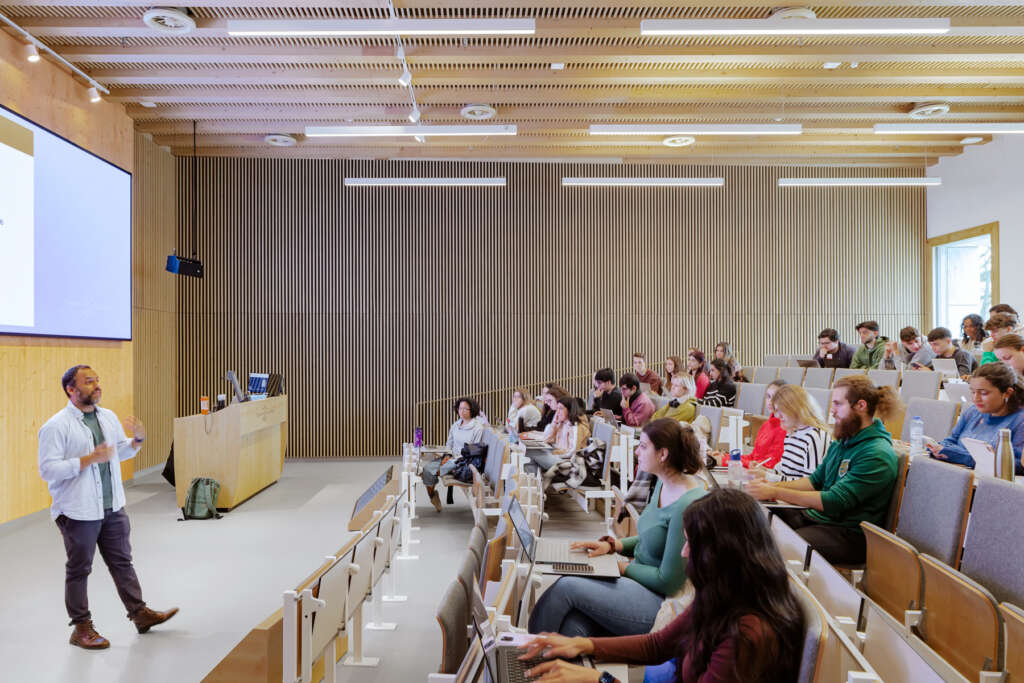
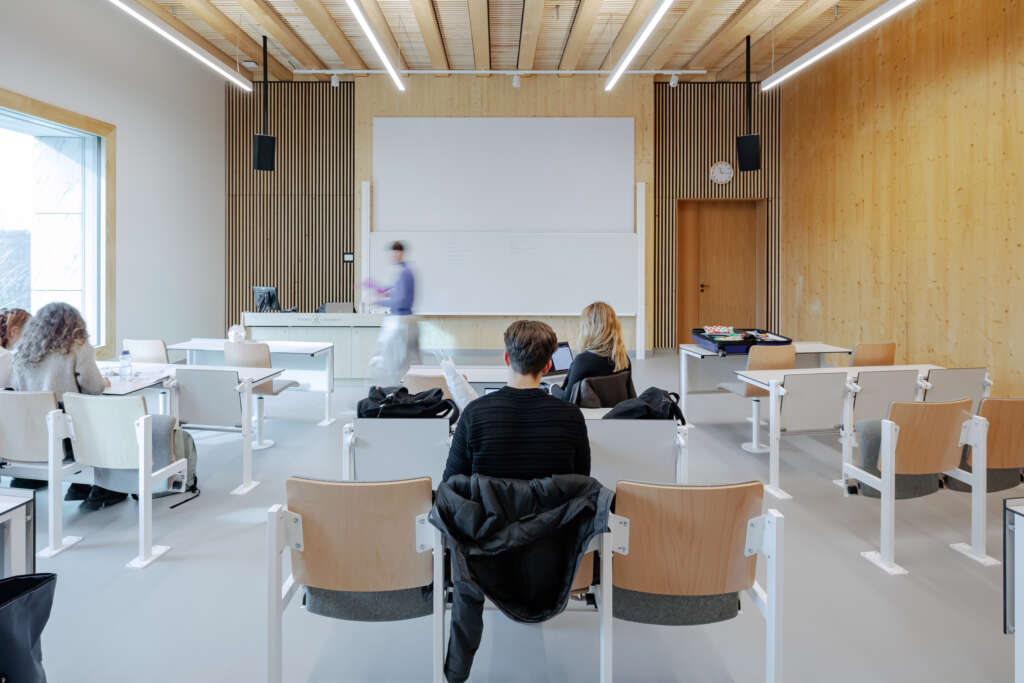
Multidisciplinary
Thanks to close collaboration between architect, structural engineer, and installation consultant, the Marga Klompé Building has been realized, with innovative solutions leading to an optimal result. The lecture halls above the large halls have impressive spans of 9.2 meters, achieved with CLT ribbed floors. This enabled us to meet requirements for deflection, vibrations, and acoustics. By raising the ribs higher and spacing them further apart, the floor gained more mass for better acoustics, while the space between the beams could be utilized for ventilation ducts, lighting, and other technical provisions. The acoustic wooden lattice ceiling between the beams subtly conceals the technology, while the beams themselves remain beautifully exposed, integral to the architecture.
‘Not only have we delivered a wooden educational building, but we have also captured the essence of intelligent design. Every material has been carefully chosen and placed, allowing us to create not just a physical structure but also a monument to smart choices and sustainability.’
– Gilbert van der Lee (Engineer, BREED Integrated Design)
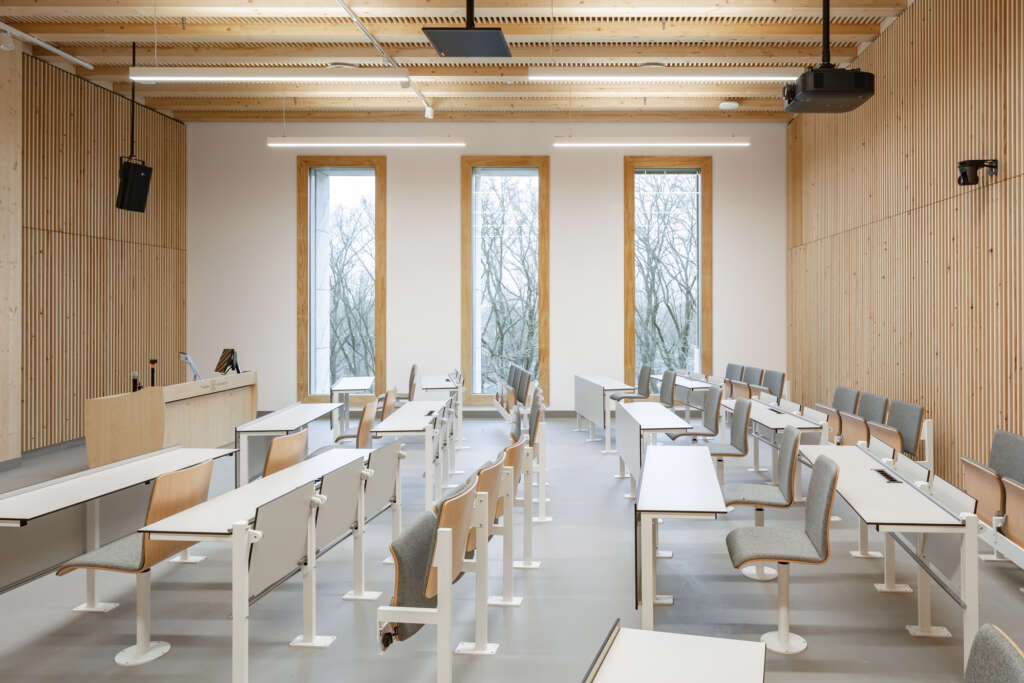
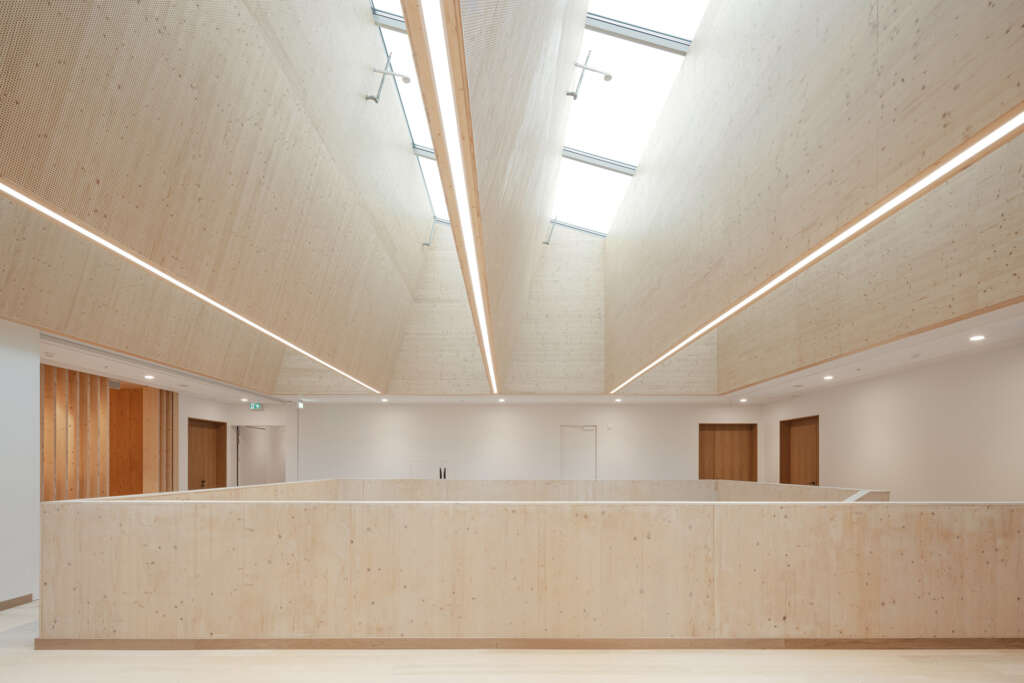
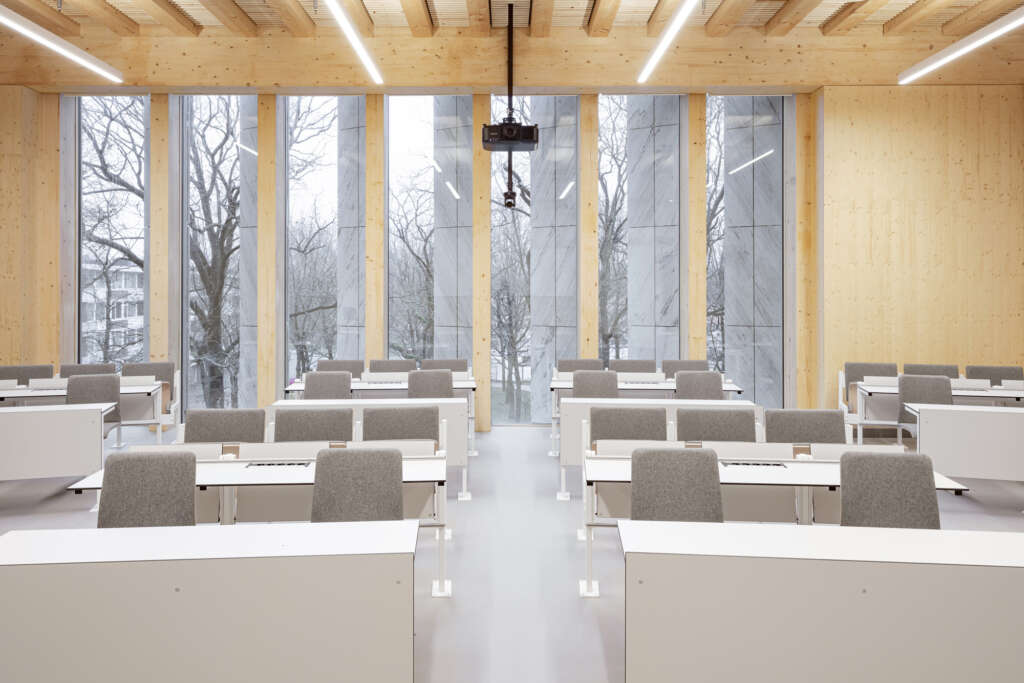
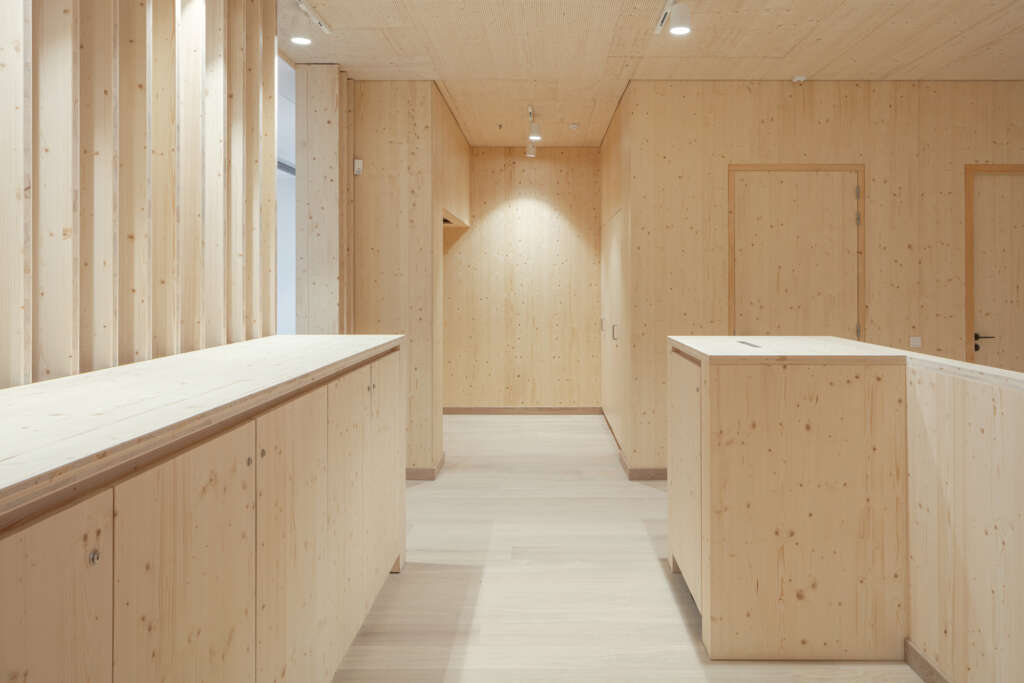
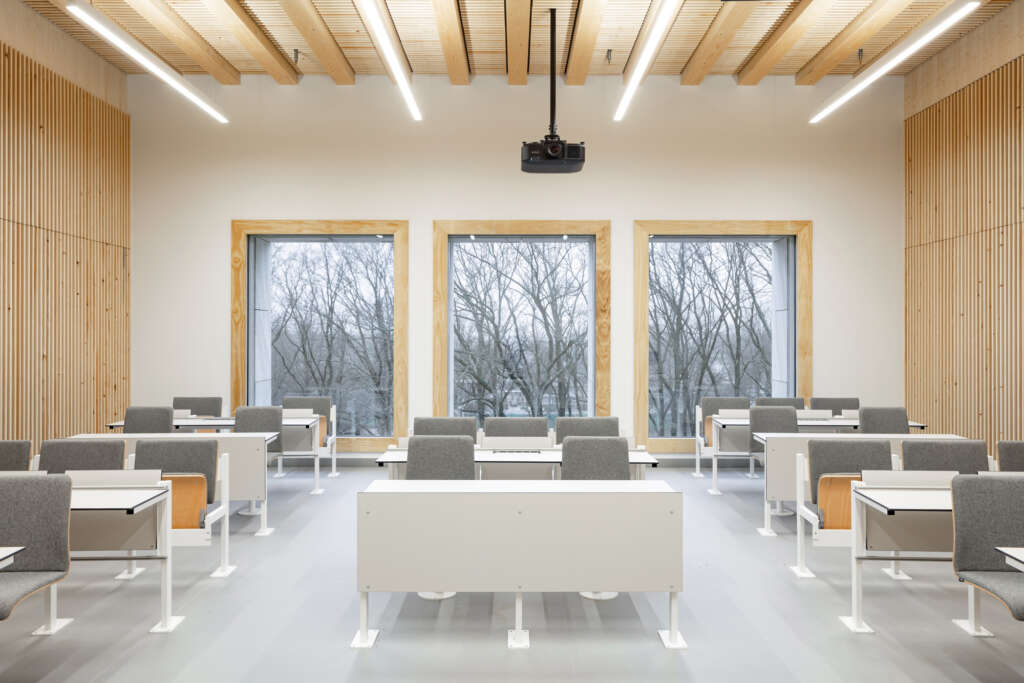
It’s in the name
Marga Klompé was the first female minister in the Netherlands and was awarded an honorary doctorate by the then Catholic University of Tilburg in 1982. Klompé advocated for a social and meaningful society and stood up for social issues. This emphasizes the connection between her vision and that of the university, where societal engagement is central. This recognizes Tilburg University’s commitment to continuing her legacy through education, research, and active involvement on campus.
‘From the outset, we knew we had the right partner. The decision for a wooden construction was surprising but fitting with our sustainability goals. Despite challenges, the ideas remained intact, allowing us to follow a clear course. The process was characterized by passion, dedication, and communication. This has led to a unique project that strengthens the identity of our environment.’
– Richard Antens (Project Manager, Tilburg University)
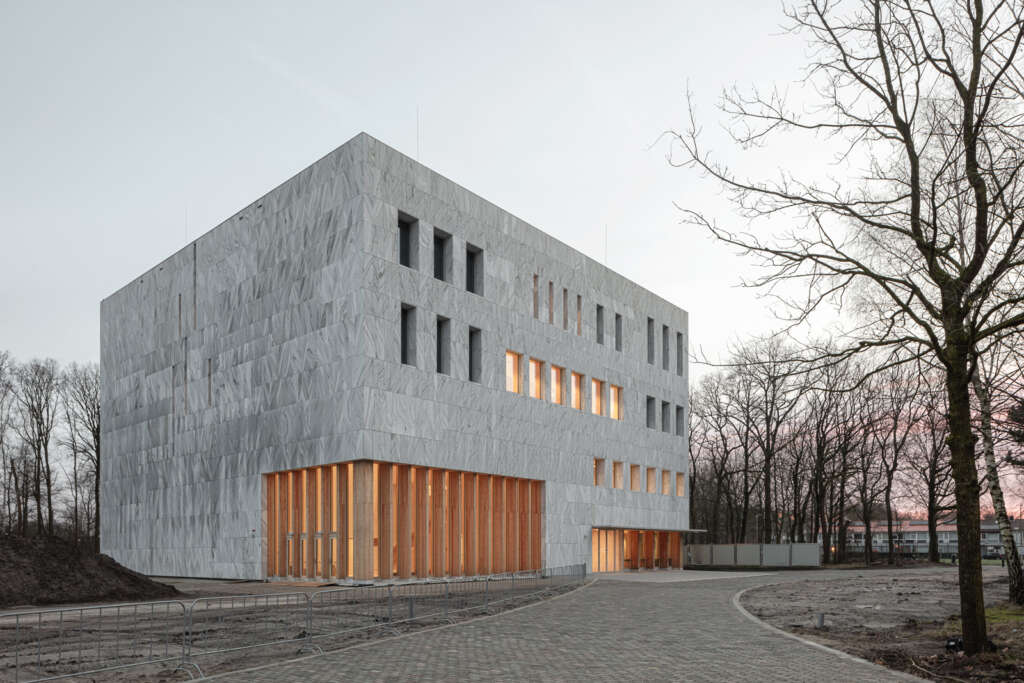
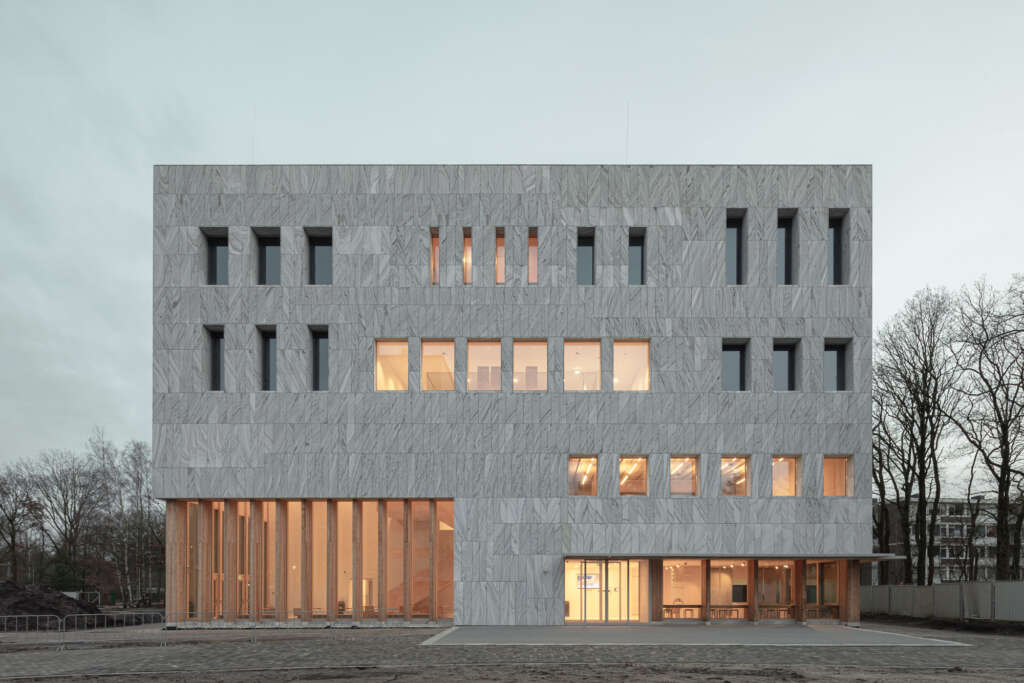
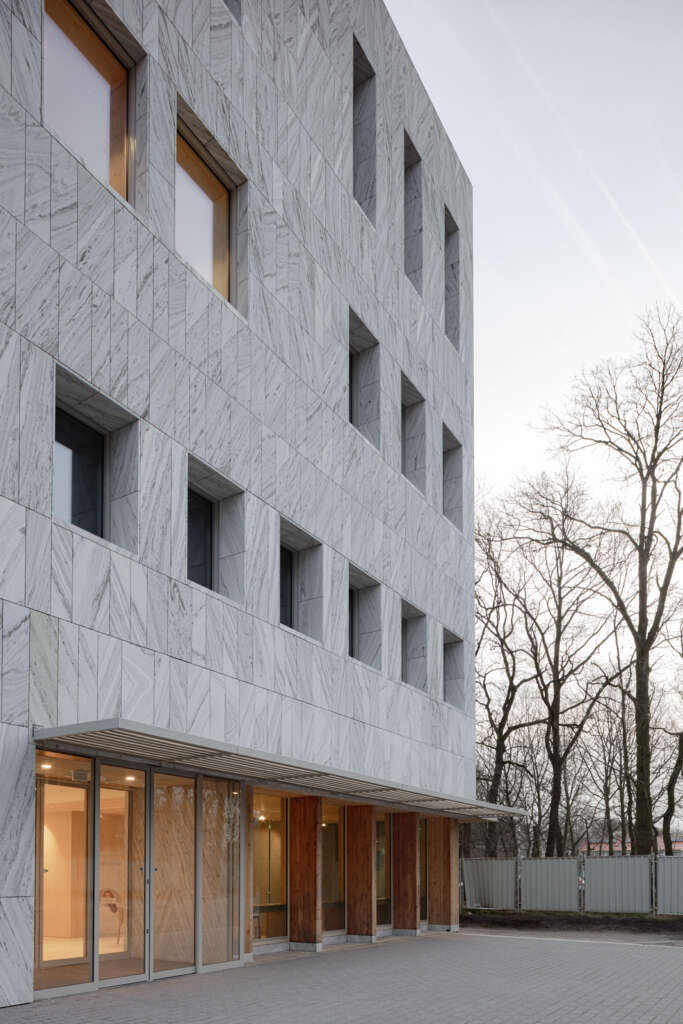
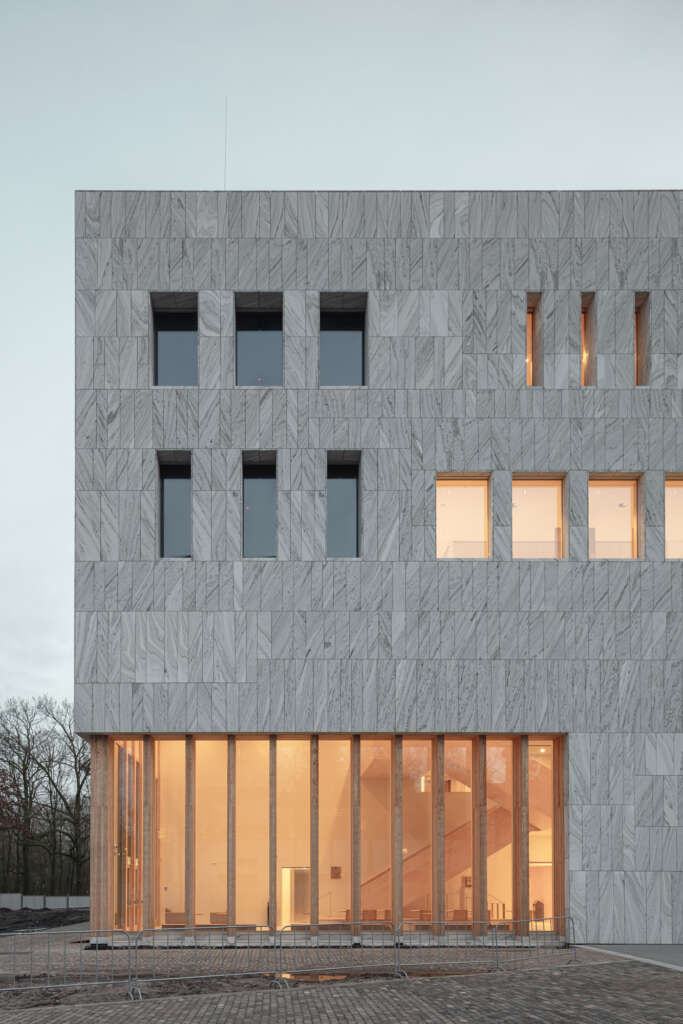
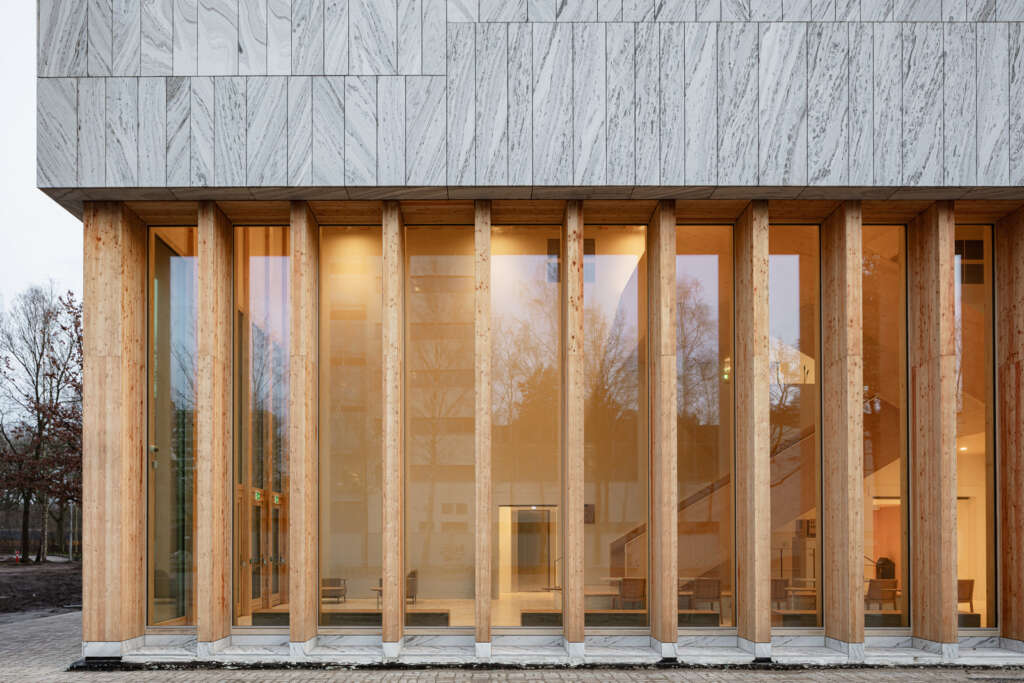
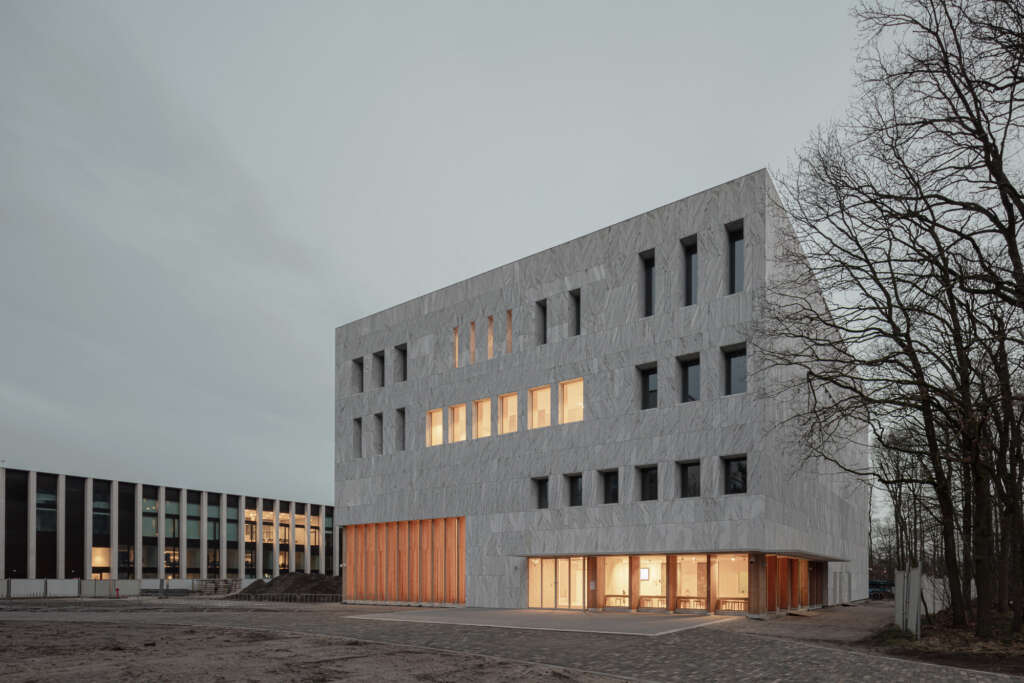
Project Details
- Project name: Marga Klompé Building
- Client: Tilburg University
- Budget: Confidential
- Period: 2019 – 2023
- Area: 5,000 m²
- Status: Completed
- Location: Tilburg, Netherland
- Typology: Public Building, Educational Building
Project Team
- Architect: Powerhouse Company
- Partner Architect: Stefan Prins
- Associate Project Architect: Janneke van der Velden
- Team: Iván Guerrero, Romano van den Dool, Martijn Ravia, Sanja Kralj, Bjørn Andreassen, Erwin van Strien, Gert Ververs, Giovanni Coni, Rafael Zarza García, Robert Cuijpers
- Constructor: BREED Integrated Design
- MEP consultant: Royal HaskoningDHV
- Building physics: Royal HaskoningDHV
- Cost consultant: Multibouwadvies B.V.
- Consultant BREEAM: Rienks Bouwmanagement
- Geotechnical engineer: SOCOTEC Nederland
- Wood supplier: Binderholz
- Contractor: BAM Bouw en Techniek
- Landscape design: Studio REDD
- Urban planning: Studio Hartzema
- Scores achieved:
- BREEAM Outstanding
- Energy label: A++++
- BENG-score: 88,6%
- BCI: 0,67
- MPG: 0,5
- MCI: 72
- Class A frisse scholen




